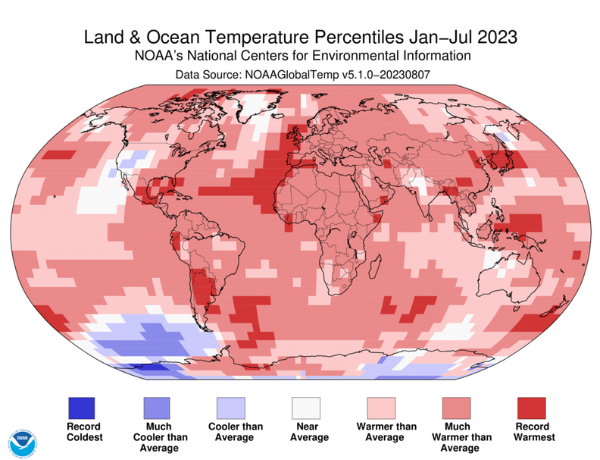NOAA released their monthly climate report for the earth earlier this week. The report showed that this was the warmest July on earth since records began in 1880, 174 years ago. It was also the 4th consecutive month of global sea surface record temperatures. While the Southeast was not the hottest region of the world, most parts of it were well above the long-term average. After this month, it is virtually certain that 2023 will become the warmest year on record, although 2024 is likely to surpass it due to the growing influence of La Nina, which is expected to peak in 2024. You can read more at https://www.noaa.gov/news/record-shattering-earth-had-its-hottest-july-in-174-years and see statistics at https://www.ncei.noaa.gov/access/monitoring/monthly-report/global/202307.

